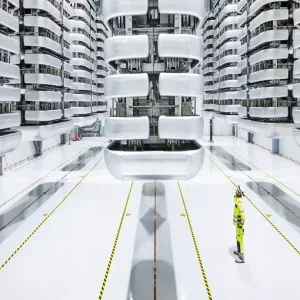The decline in sales was primarily due to the lower prices in the gas wholesale business and lower gas sales volume at Pan-European Gas, currency-translation effects at UK and Nordic, and lower generation from nuclear and hydro assets at Nordic.
For the year, adjusted EBIT was EUR9.6bn, down 2.3% compared to the year ago. The adjusted net income declined by 4.8%.
After high investments in 2007 and 2008, E.ON deliberately reduced its investments in 2009 to EUR9.2bn.
Central Europe’s adjusted EBIT rose by EUR97m to EUR4.8bn in 2009. The positive factors included efficiency-enhancement measures, a regulation-driven increase in network charges, and the inclusion for the entire year of operations in France acquired in 2008, the company said.
The adjusted EBIT at Pan European Gas was down by 33%, while UK’s adjusted EBIT was down by about 30% to EUR649m, predominantly due to the transfer of gas contracts to Energy Trading and to lower market-based transfer prices.
US Midwest’s adjusted EBIT of EUR384m was slightly below in 2009 than the prior-year level, due to lower sales volumes and lower wholesale prices. Nordic’s adjusted EBIT fell by 31% to EUR535m in 2009. Alongside currency-translation effects, the main negative factor was lower sales volume from nuclear and hydro assets, according to E.ON.
New markets recorded an EBIT of EUR862m. The Italy and Spain market units posted particularly significant earnings increases, in part due to non-recurring effects. Russia and Climate & Renewables also made positive contributions to this segment’s adjusted EBIT.
Energy Trading posted an adjusted EBIT of around EUR950m, in part through optimization in gas trading.
Despite the absence of roughly EUR1bn in earnings streams due to asset disposals, E.ON expects its 2010 adjusted EBIT to be 0% to 3% above the prior-year level and its 2010 adjusted net income to be in line with the prior year.






